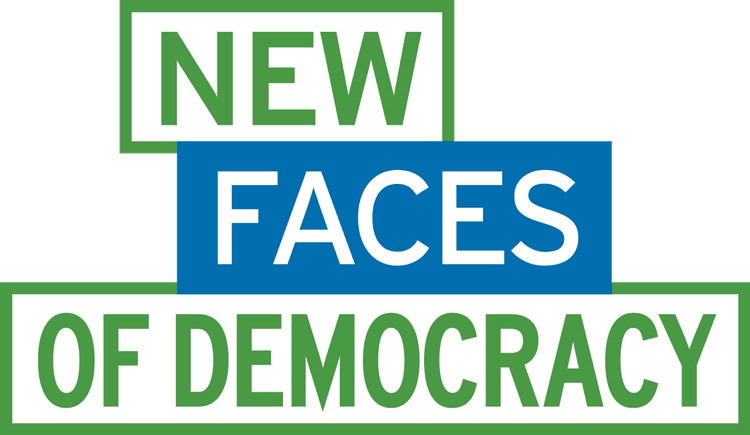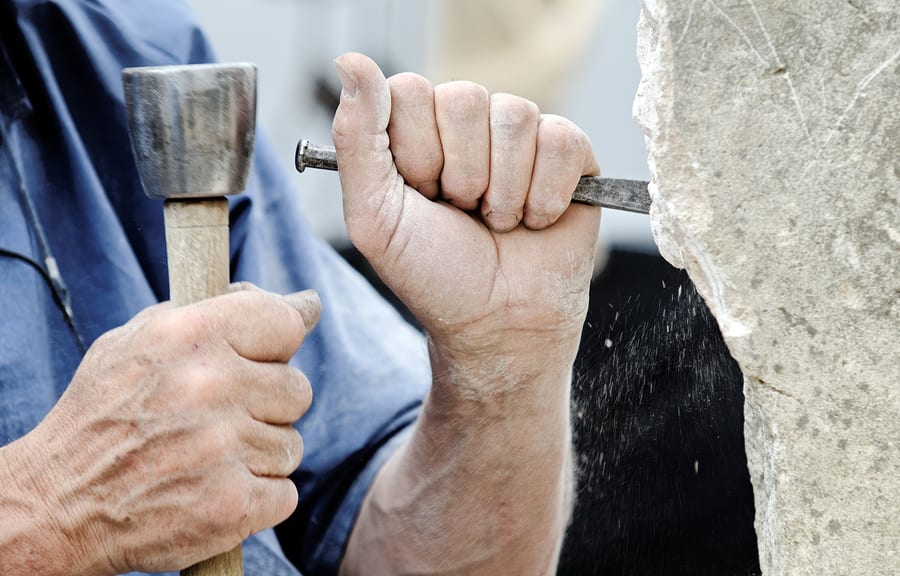In New Faces of Democracy, I profile all kinds of people and grassroots groups with one thing in common, defeating Trump and his agenda this November. There are activists across the gamut — candidates and artists, newsletter writers and fundraisers. And then there is one category of activism that focuses on what I call “chipping away at the margins”.
We all know that, in 2016, Trump lost the popular vote by 3 million votes. And we also all know that he won the electoral college, and therefore the presidency, by a mere 80,000 votes in three swing states. So the general theory behind the margin chippers, each highly focused in specific areas, is that if we can chip away at the margins in key swing states, that just might be enough to keep those states from going for Trump in the winner take all electoral college system.
140 Florida Blue Project is one of these groups. Spearheaded by activists Janelle Christensen and Margie Stein, 140 Florida Blue Project is dedicated to running Democrats in every single race for the Florida state legislature. That sounds like a pretty obvious thing to do, right? Yet many races in red districts are uncontested by Democrats because the party considers them unwinnable and they want to focus their resources on more winnable seats. But according to Janelle and Margie, it’s still important to field Democratic candidates in those districts for several reasons. Having Democrats in these races puts the Republican incumbent on defense. It gives Dems the chance to challenge the Republican narrative and force the incumbents to justify their positions and votes. It makes the Republican candidates spend their money on their own races instead of sending those funds to tighter races elsewhere in the state. It activates the democratic base in those long-forgotten districts, inspiring them to show up and vote up and down the ballot. It builds the Democratic infrastructure in the region, with local organizers registering voters and getting out the vote. And most importantly for this discussion at least, this strategy chips away at the razor-thin margins for which Florida is famous, potentially delivering all 29 of Florida’s electoral college votes to Biden or future Democrats in the White House.
Granted, this is not a sure thing this year, but if you are patient and play the long game, Janelle and Margie believe that after a few cycles, it can make a huge difference. In fact, this strategy was employed in Virginia to great effect, when both chambers of the state legislature flipped for the Democrats in 2019.
There are other groups that are working to chip away at the margins but are doing so in ways that are more under the radar. I’ll call these the Democrats’ stealth bombers.
The first is called Galvanize USA, a group that empowers women in the midwest to vote their own values by providing them with real-world and online communities that help them express their political beliefs. The paradox here is that while 52% of white women voted for Trump in the last election, many of them also support issues like abortion, gun safety, and climate change. The research behind Galvanize says that they are not voting their values because of gender, social and cultural barriers. Many of these women live in homes in Republican areas where Fox News is on all day long. They avoid talking about politics with their husbands and fathers because, like many women, they play the role of peacekeeper in the homes and want to avoid conflict. Many also feel like don’t feel like they know enough to talk about politics and, lacking community in their beliefs, they feel isolated and lack confidence in their own opinions. The mission of Galvanize is to help support these women by providing them with a community that allows them to be seen and heard and ultimately vote for their own values. I love this group because it helps women build their confidence, knowledge, and agency and that extends far beyond voting.
Speaking of voting values, there is another group named just that — Vote Values seeks to connect with white evangelical voters in swing states who feel that Trump’s values do not align with their own. Given the well-documented albeit puzzling loyalty of Trump’s evangelical base, you might ask, “Does this kind of person exist?” Yet the research conducted by this group (with serious Silicon Valley and data credentials) has identified a subset of evangelicals that they believe is open to questioning the fealty of their community. While many white evangelicals live in an information bubble of Fox News and Christian right radio, this subset that also watches network news is more open to other opinions. Vote Values is engaging with this voting bloc via highly targeted digital ads featuring right-of-center evangelical influencers who oppose Trump. According to Vote Values, if just 5% of these voters change their vote, it would meaningfully impact the outcome of the election.
Finally, there’s a Super PAC called American Bridge. This group is also highly targeted, seeking to reach Obama/Trump voters in rural battleground areas in Michigan, Pennsylvania, and Wisconsin. American Bridge creates ads featuring real people from the area talking to their neighbors in a kind of farmer to farmer way about how the policies of Trump’s administration have failed their region. The theory here is that swing voters in these swing districts will be more open to persuasion through this kind of “real talk” vs. slickly produced ads. American Bridge seeks to meet working people where they are, mostly on television and AM radio, with the goal of undermining Trump’s support with the seniors and small-town rural voters key to his reelection.
One way to articulate the uniting theory behind all these groups is to “lose less badly” in targeted, swing regions. That may not sound particularly noble or glamorous but it could make all the difference in who ends up sitting in the Oval Office next January 20.




